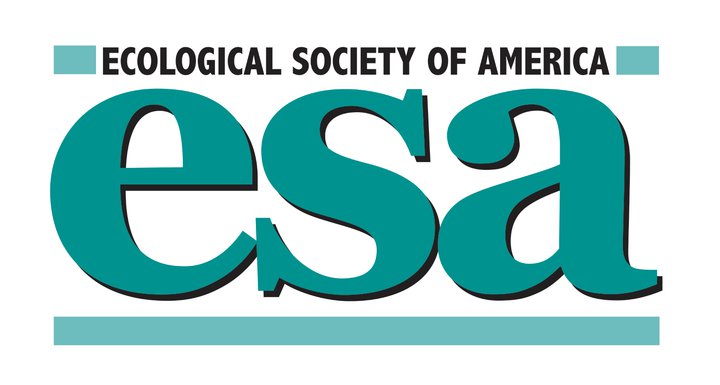Location
The Ecological Society of America (ESA) is a nonpartisan, nonprofit organization of scientists founded in 1915 to:
- promote ecological science by improving communication among ecologists;
- raise the public’s level of awareness of the importance of ecological science;
- increase the resources available for the conduct of ecological science; and
- ensure the appropriate use of ecological science in environmental decision making by enhancing communication between the ecological community and policy-makers.
Ecology is the scientific discipline that is concerned with the relationships between organisms and their past, present, and future environments. These relationships include physiological responses of individuals, structure and dynamics of populations, interactions among species, organization of biological communities, and processing of energy and matter in ecosystems.
Members:
Resources
Displaying 6 - 10 of 47How resilient are African woodlands to disturbance from shifting cultivation?
Large parts of subâSaharan Africa are experiencing rapid changes in land use and land cover, driven largely by the expansion of smallâscale shifting cultivation. This practice creates complex mosaic landscapes with active agricultural fields and patches of mature woodland, interspersed with remnant patches in various stages of regrowth.
Creating space for largeâscale restoration in tropical agricultural landscapes
Poorly planned, largeâscale ecological restoration projects may displace agricultural activities and potentially lead to the clearance of native vegetation elsewhere, with associated impacts on biodiversity and ecosystem services. Yet few studies have considered these risks and the ways in which restoration can increase competition for land. Here, we address this issue by examining whether largeâscale restoration of the Brazilian Atlantic Forest could displace cattle production, as a result of land shortages.
Characterizing avian survival along a ruralâtoâurban land use gradient
Many avian species persist in humanâdominated landscapes; however, little is known about the demographic consequences of urbanization in these populations. Given that urban habitats introduce novel benefits (e.g., anthropogenic resources) and pressures (e.g., mortality risks), conflicting mechanisms have been hypothesized to drive the dynamics of urban bird populations. Topâdown processes such as predation predict reduced survivorship in suburban and urban habitats, whereas bottomâup processes, such as increased resource availability, predict peak survival in suburban habitats.
empirical investigation of why speciesâarea relationships overestimate species losses
It is generally assumed that, when natural habitat is converted to humanâdominated land cover, such habitat is lost to its native species. Most literature assumes that species richness should vary as a function of remaining natural area, following the wellâknown speciesâarea relationship (i.e., classic SAR). However, classic SARs have consistently overestimated species losses resulting from conversion of natural forested land cover to humanâdominated landscapes. Moreover, richness is sometimes a peaked function of remaining natural habitat.
Legal barriers to effective ecosystem management: exploring linkages between liability, regulations, and prescribed fire
Resistance to the use of prescribed fire is strong among many private land managers despite the advantages it offers for maintaining fireâadapted ecosystems. Even managers who are aware of the benefits of using prescribed fire as a management tool avoid using it, citing potential liability as a major reason for their aversion. Recognizing the importance of prescribed fire for ecosystem management and the constraints current statutory schemes impose on its use, several states in the United States have undertaken prescribed burn statutory reform.


